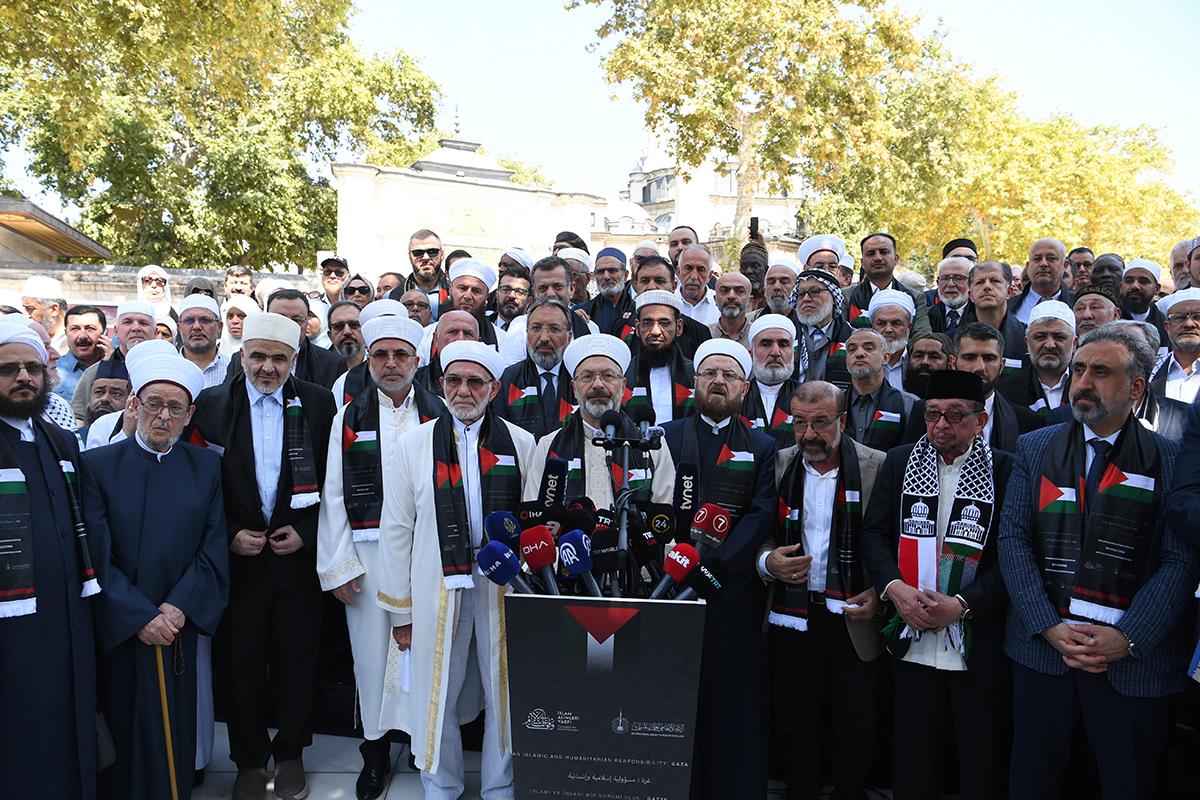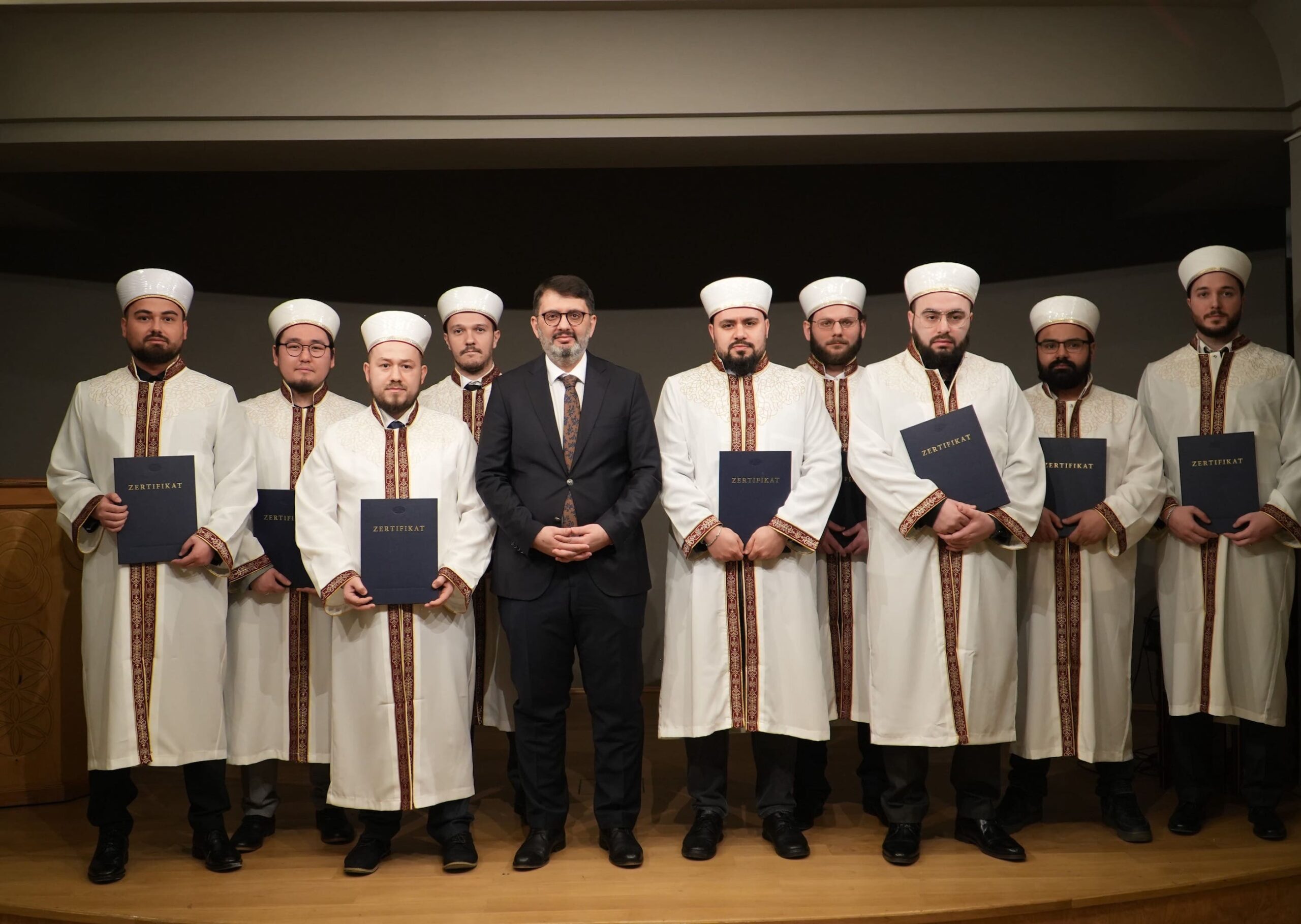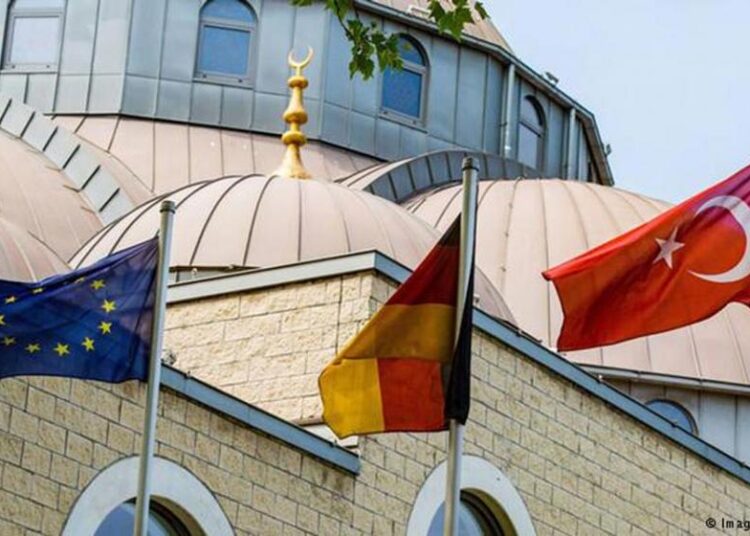Levent Kenez/Stockholm
Germany’s interior ministry has formally called on the Turkish-Islamic Union for Religious Affairs (DITIB), the German branch of Turkey’s Directorate of Religious Affairs (Diyanet), to clearly distance itself from extremist rhetoric. The move reflects Berlin’s growing unease with Ankara-backed religious networks that continue to exert influence over Muslim communities in Germany.
A spokesperson for the ministry, speaking to the Die Welt newspaper, said the German government expects “all organizations cooperating with federal authorities to clearly distance themselves from structures or individuals who disseminate antisemitic narratives or pursue Islamist objectives.”
The demand follows developments at a conference of Islamic scholars in Istanbul on August 22, which was attended by Turkey’s top cleric, Ali Erbas, head of the Diyanet. At the close of the meeting, participants endorsed a declaration that expressed support for Hamas’ armed struggle against Israel and issued a call for “global jihad.” German officials viewed this statement as deeply problematic, particularly given DITIB’s structural and personnel dependence on the Turkish Diyanet.
During his speech at the Istanbul conference, Erbas described the Palestinian issue as “a matter of faith, morality and conscience,” adding, “We know that peace will not come to the world until peace comes to Palestine. We must free this ancient geography from oppressors who cling to it like ticks and infect it like microbes. For this reason, all Muslims, Muslim states and people of conscience must unite, take serious decisions and impose sanctions to stop the oppressors.”

Erbas also added that the oppressed will soon achieve victory, while the oppressors will inevitably face the punishment they deserve.
Such rhetoric has heightened concerns in Germany about whether DITIB, as a major umbrella organization representing hundreds of mosques in the country, sufficiently aligns with Germany’s democratic and constitutional principles.
As part of its strategy to reduce foreign influence in local religious institutions, the German government has moved to train imams domestically rather than rely on clerics sent from Turkey. The commitment was included in the coalition agreement signed by the governing parties when forming the current administration, which states that cooperation with religious associations in Germany will depend on the extent of interference or direction by foreign governments.
According to Die Welt, the interior ministry has already allocated 465,000 euros this year to support imam training programs in collaboration with the Islamkolleg Deutschland in Osnabruck. The goal is to replace the long-standing system in which the Diyanet appointed and paid clerics stationed in Germany.
The ministry emphasized that the plan to end the assignment of imams from abroad remains valid. “Whether initiatives such as the imam training program continue will depend on how DITIB positions itself and how successfully the process advances,” it said.
Despite Germany’s efforts, the Diyanet continues to expand its international programs. The institution has encouraged the recruitment of Turks who are already citizens of European countries, urging that they receive theological training in Turkey before being assigned as imams abroad.
To advance this initiative, the Diyanet has allocated 608 million Turkish lira, about $17.3 million. More than 1,000 students from Europe and North America have already studied in Turkey, with many now serving in Diyanet-affiliated institutions overseas.
For instance, in 2025 the Diyanet launched a new training program under which 75 graduates of Turkish faculties of theology will travel to Germany each year to undertake a two-year program at the DITIB Academy in Dahlem, North Rhine-Westphalia. Upon graduation, these individuals will be appointed as imams in DITIB-affiliated mosques, with a contractual obligation to serve for at least 10 years. Those who fail to honor the commitment will face financial penalties.
German officials have repeatedly emphasized concerns that imams appointed and paid by the Turkish government are poorly integrated into German society. Many lack sufficient German language skills and remain politically aligned with Ankara, raising questions about their ability to serve as spiritual guides in a multicultural environment.
European intelligence agencies have long suspected that DITIB and other Diyanet-linked organizations may be used for purposes extending beyond religious guidance. These include surveillance of diaspora communities, dissemination of political propaganda and intelligence gathering, particularly concerning opponents of Turkish President Recep Tayyip Erdogan.

Several European governments, including those of Germany and Austria, have opened investigations into Diyanet mosques and cultural centers on allegations that clerics were spying on critics of the Turkish government.
Germany’s unease with DITIB is compounded by broader concerns about Turkish political influence through diaspora organizations. A comprehensive 380-page interior ministry report published in 2023 highlighted the role of the nationalist Gray Wolves movement (Ulkuculer), which maintains close ties to Erdogan’s ally, the Nationalist Movement Party (MHP).
The report noted cooperation in Germany between the Ulkuculer and the ruling Justice and Development Party (AKP) as well as connections with the Union of International Democrats (UID), an AKP-affiliated lobbying group active abroad. DITIB and the Islamic Community Milli Gorus (IGMG) were cited as key religious institutions engaged in overlapping networks.
Originally founded as a secular state body to counteract radicalism in Turkey, the Diyanet has undergone a profound transformation under Erdogan’s 23-year rule. It has increasingly become an instrument for promoting political Islam aligned with the ideology of the Muslim Brotherhood both domestically and internationally.
Since a coup attempt in 2016, the Turkish government has dismissed about 3,000 Diyanet personnel, replacing them with people loyal to Erdogan’s political Islamist vision.












